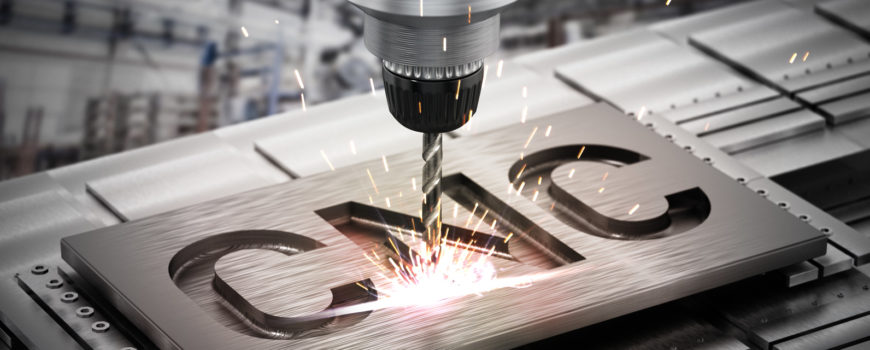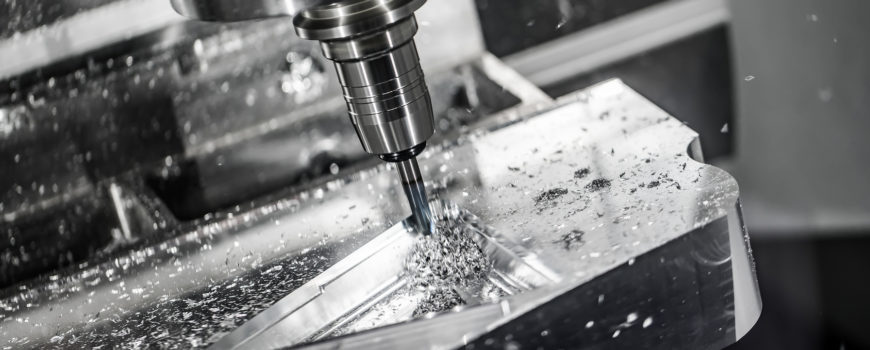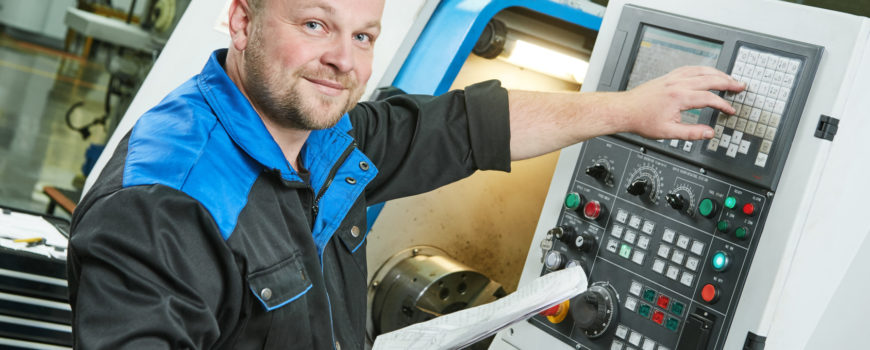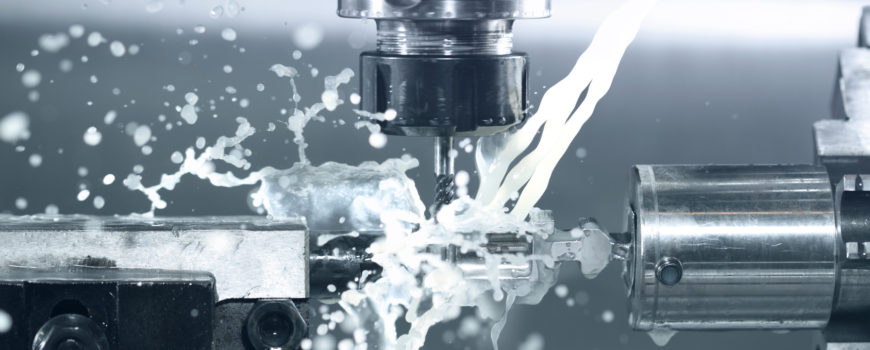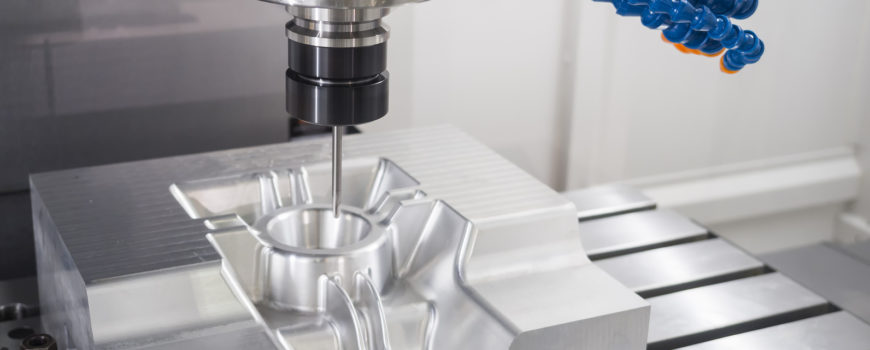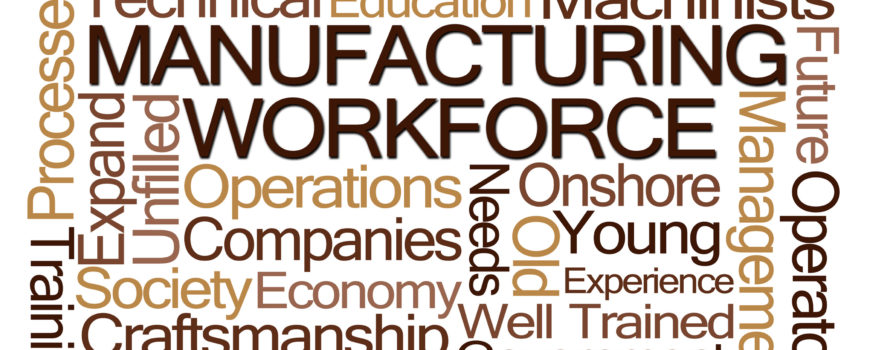It’s no secret that the work done within a machine shop has changed significantly over the past few years. The world of manufacturing used to be dominated by assembly lines where workers would perform the same tasks over and over again to rapidly produce high-quality products. As the technology in the manufacturing industry has progressed, so too has the world of manufacturing. Now, a large amount of manufacturing is performed by something called CNC machining. CNC machining and CNC manufacturing represent the next generation of manufacturing. It is important for everyone to familiarize themselves with this industry. Those who are best able to adapt to these changes in the world of manufacturing will be best positioned to remain competitive in the next generation.
An Overview of CNC Machining
For those who might not know, CNC machining is the name given to a manufacturing process that is dominated by advanced computer programming. In this process, a high-precision computer program controls the movements of the various tools and machines within a factory. In this fashion, computers are able to control the complex movements of various machines with extreme precision. Examples of machines that can be controlled through CNC machinery include routers, lathes, mills, and more. With the help of CNC programming, 3D cuts can be performed quickly and accurately with only a single set of prompts. In this fashion, efficiency within a factory can increase dramatically and the output of the manufacturing lines is improved.
What Does CNC Stand For?
CNC stands for “computer numerical control” and has changed how an original equipment manufacturer (OEM) functions. Many compare this process to something called limited numerical control. In contrast to CNC, limited numerical control requires human operators to feed prompts into the system. The human hand is responsible for guiding the machines using tools such as buttons, wheels, and levers. In contrast, a CNC system is more like a set of computer components that are running off of software and consoles. Because computers are able to perform tasks more quickly and accurately than the human hand, CNC is superior to other potential forms of control. For this reason, CNC has risen rapidly in popularity when compared to other forms of manual control or limited control.
How Does CNC Machining Work?
While CNC machining is controlled by complicated computer programs, it is important for everyone to understand the basics. When a CNC system is turned on, the required cuts are entered into a software system as programs. These commands are used to control the corresponding machines. Then, their tools will carry out each of these commands are specified in the computer program. In essence, the machine will function as a robot in a custom machine shop.
The CNC programming is controlled by computer code. This is a numerical function that will ensure that the mechanisms are flawless. Even though errors can occur, these programs are far more accurate than a human operator or manual control. Furthermore, a CNC program can even ask a tool to cut in more than one direction at the same time. This expedites the manufacturing process and can increase the output of a factory.
Many of these CNC machines can retain programs in their memory systems with code that is both written and edited by trained computer programmers. This further increases the efficiency of CNC machines. Finally, CNC machines are not static. They can change and evolve as the circumstances require. New prompts are able to be added to pre-existing programs by simple revisions of the code. This means that CNC machines are able to be adapted to carry out different tasks in a machine shop Denver. Their versatility is unrivaled in the world of manufacturing.
What are Some Types of CNC Machines?
CNC machinery is incredibly versatile and can be applied to a wide variety of machines. As technology has advanced, the mechanisms in these machines have been enhanced with digital computers that have made CNC machining and precision manufacturing possible. Many of the machines in today’s manufacturing world are electronic. This means that CNC machining can be applied to almost all of these devices. There are several common applications of CMC machining which include:
Mills: Mills that run via CNC are able to be run on programs that use both number and letter prompts. These prompts are used to guide the machine across various distances, sometimes in multiple directions at the same time. The code that is used to feed a mill can be tailored to meet that needs of the manufacturers. Mills use a 3D system that functions on the X, Y, and Z axis. Newer mills can add even more axes to increase their efficiency.
Lathes: CNC machining can even be applied to lathes. In the past, lathes were dangerous machines that would lead to horrible accidents. Because lathes can now be controlled by CNC machining, the frequency of injuries due to lathes has dropped. Using CNC technology, circular cuts can be controlled and performed with higher precision and velocity. Because of this, CNC lathes can produce more complex designs than those that could be produced manually. CNC lathes typically are controlled by code that supplies commands on two separate axes. More complex lathes can have 3 axes.
Water Jet Cutters: CNC machining has also been applied to water jet cutters. Water jets are tools that fire a stream of water at high velocity. This water is used to mold hard materials, such as metal and granite, with a high-degree of precision. The water can also be mixed with sand or another solute to shape the target accordingly. CNC machining can be used to control both the speed and direction of the water jet. It can also be used to control the width of the stream. As a result, CNC can be used to mold metal and granite into very specific designs with a high-degree of precision.
Plasma Cutters: CNC machining has also been applied to the world of plasma cutters. This machine uses a white-hot plasma torch to cut pieces of metal and other hard surfaces. The speed and heat necessary to cut metal is incredibly dangerous and produced using compressed air and electrical arcs. The ability to control these devices using CNC machining represents an advancement in the world of safety.
A Wide Variety of Applications with CNC.
Clearly, CNC machining can be applied to a wide variety of different machines and tasks. Because of CNC machining, these devices can be controlled remotely, increasing safety in the workplace. As technology progresses, CNC machining will become even more important to the future of Denver manufacturing. A CNC machinist can use this type of programming to produce high-quality custom machined parts more quickly than ever before.

